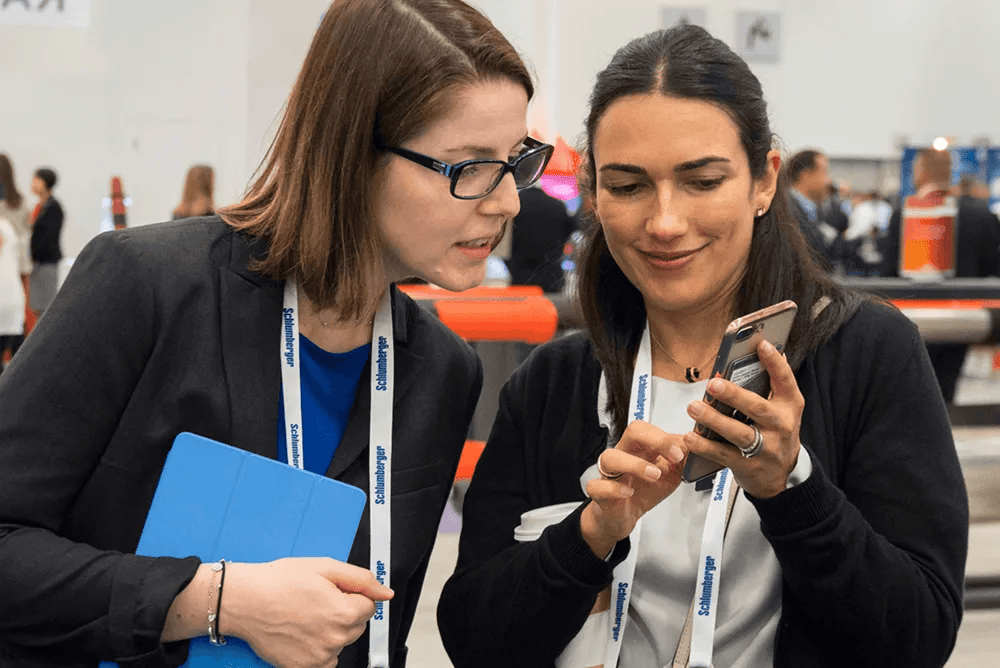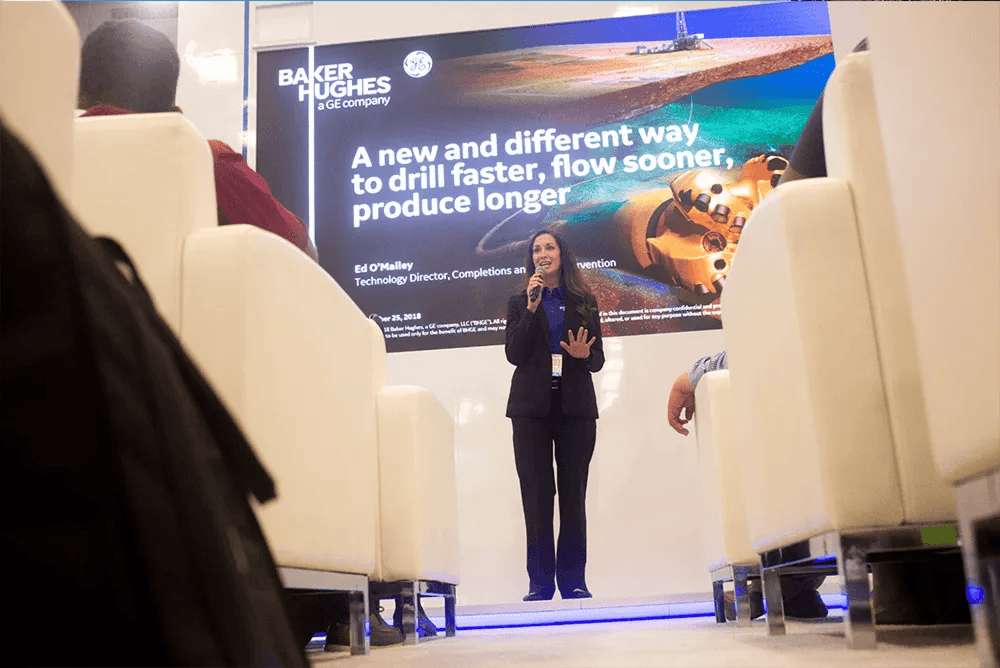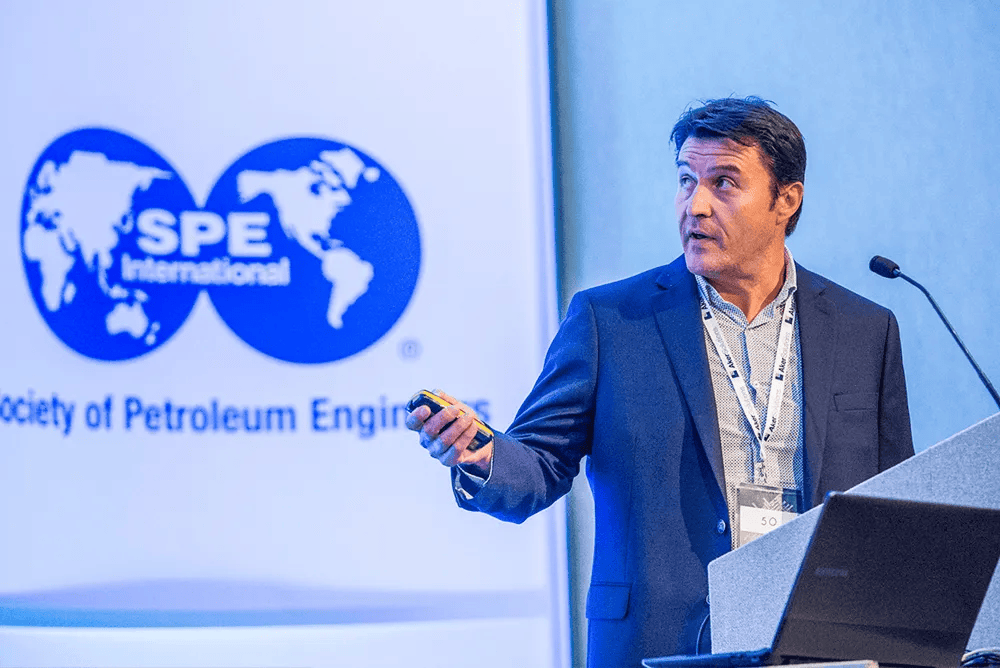Thank you for interest. Authors will be notified on the status of their submission mid-December.
Call for Paper Proposals is Now Closed
SPE must comply with all applicable sanction laws, including those of the United States and the United Kingdom. This includes screening individuals and entities against applicable lists of restricted parties to determine whether SPE is prohibited from, among other things, providing services to or receiving services from such parties.

Raise
your company’s technical profile at a renowned industry event and have your paper published on OnePetro.org
Additional Information
Paper Proposal Information
Please note that abstract submissions should be formatted into four (4) specific paragraphs:
- Objectives/Scope: Please list the objectives and/or scope of the proposed paper. (25-75 words)
- Methods, Procedures, Process: Briefly explain your overall approach, including your methods, procedures and process. (75-100 words)
- Results, Observations, Conclusions: Please describe the results, observations and conclusions of the proposed paper. (100-200 words)
- Novel/Additive Information: Please explain how this paper will present novel (new) or additive information to the existing body of literature that can be of benefit to and/or add to the state of knowledge in the petroleum industry. (25-75 words)
The following guidelines apply:
- DO NOT include title or author information in your abstract
- Word Minimum: 225
- Word Maximum: 450
ORCiD ID
SPE is adopting ORCiD (Open Researcher and Contributer ID), a widely accepted unique identifier for authors, giving them control over their content and eliminating ambiguities. All SPE authors will be required to have an ORCiD.
Anyone can register an ORCiD ID for themselves for free using a simple online registration form on the orcid.org website. The initial process takes less than 2 minutes. Once created SPE members can also add their ORCiD iD to their SPE member profile.
If you already have an ORCiD ID, please add it to your SPE Member/Customer Profile. Login to SPE.org and update your profile today!
General Guidelines
- Obtain the necessary clearance from your management, your partners, and customers BEFORE submission
- All proposals and manuscripts must to be submitted ENGLISH language only.
- Each author may submit a maximum of three paper proposals per conference.
- Authors whose paper proposals are accepted will be required to provide a manuscript for inclusion in the conference proceedings.
- Proposals suggesting commercialism in any form will be rejected.
- Proposals should be submitted based on any of the topics listed under the technical categories.
- The substance of the proposed paper must not have been published previously in trade journals or in other professional or technical journals.
- The proposal should stand on its own and not refer to another work unless associated with the current work.
- Early submission is particularly important to ensure that the committee members have ample time to review the paper proposals. Submissions received after the deadline will not be considered. No exceptions will be made. The Final Submission Deadline is 15 October 2026.
- Authors should indicate their presentation preference: Technical presentation or Knowledge sharing ePoster presentation. The programme committee reserves the right to decide on the final allocation and presentation method.
- Authors who do not submit a manuscript and the associated publication forms by the manuscript due date will be withdrawn from the program and will not be allowed to present per SPE’s No Paper, No Podium policy
- If accepted, your paper proposal may be published, as submitted, in conference information media, including on the SPE website.
- An agreement to present a paper at this SPE conference carries an obligation to participate in the event. Please review SPE's Author Guidelines for Papers.
A Word on Commercialism
Plagiarism Check
In an effort to further improve SPE’s technical quality standards, all submitted conference papers will be checked for plagiarism.
AI-generated Content in Publications
The proliferation and continually increasing sophistication of AI-assisted language tools and large language models (LLMs, such as ChatGPT, Deepseek, etc.) have opened new avenues for research as well as technical writing assistance, but the ethics and best practices for their use continue to evolve. These tools may generate useful information and content but are also prone to errors and inconsistencies. Furthermore, while AI can be very useful to assist in editing toward a clearer paper, particularly for non-English native speakers, it cannot replace the actual research and content creation.
To this end, AI-generated content can be used within SPE publications under the following conditions:
- AI language tools may not be listed as an author. The AI tool cannot sign publishing agreements or transfers of copyright.
- If AI language tools are used within a paper proposal submission, their use should be clearly noted at the end of the abstract as to how the tool was used, i.e. English clarification or grammar, literature review aid, etc.
- Any AI-generated content that is used within a manuscript should be thoroughly vetted, fact-checked, and disclosed with published references by the authors. All authors listed on a manuscript are equally responsible for this content quality and authenticity.
- If AI language tools are used within a manuscript, their use should be clearly explained within the methodology or acknowledgment section of the paper. This includes their use in assisting with the writing or proofing of the manuscript. If AI-generated content is included within a manuscript without an explanation, this can be grounds for rejection of the work at the discretion of SPE and may result in a code of conduct review.
- The authors of the manuscript or paper proposal will be held responsible for any errors, inconsistencies, incorrect references, plagiarism, or misleading content included in the AI tool.


